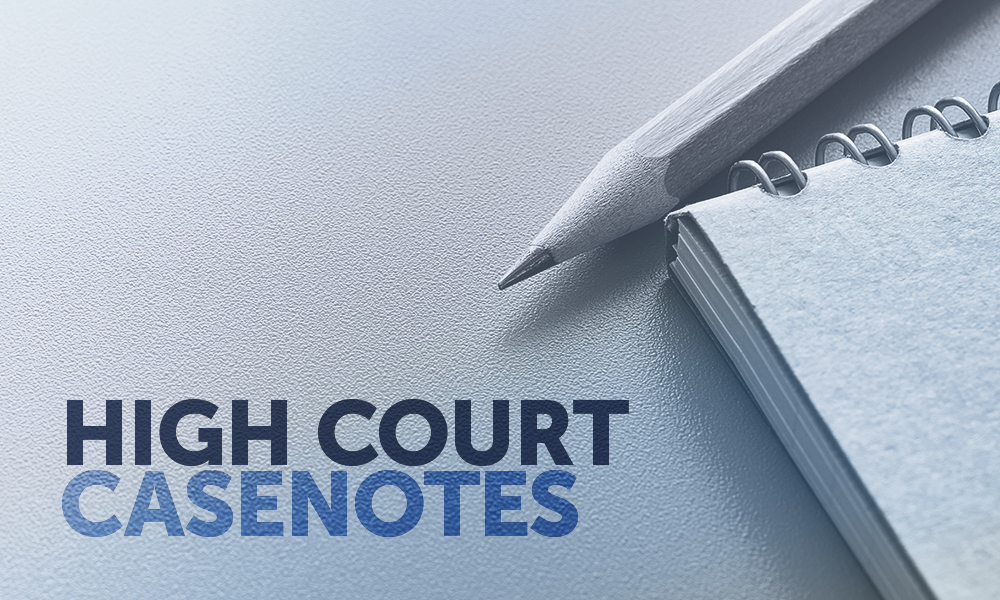In Kingdom of Spain v Infrastructure Services Luxembourg S.A.R.L & Anor [2023] HCA 11 (12 April 2023), the High Court was required to consider whether Spain’s entry into the Convention on the Settlement of Investment Disputes between States and Nationals of Other States (1965) (the convention) constituted a waiver of immunity.
That is, a waiver under the Foreign States Immunities Act 1985 (Cth) (States Immunities Act) from Australian court processes concerning recognition and enforcement of arbitral awards.
The respondents, relying on the provisions of the Energy Charter Treaty (1994), commenced an arbitration against Spain under the convention, to which Spain is a party.
The convention provides for an arbitral tribunal to hear and determine disputes between States and the nationals of other States on request. The respondents obtained an arbitral award of €101 million.
The respondents commenced proceedings in the Federal Court of Australia seeking to enforce the award under the International Arbitration Act 1974 (Cth), and seeking orders that Spain pay the award together with interest.
The States Immunities Act provides that a foreign State is immune from the juridiction of Australian courts, except as provided in the States Immunities Act.
One exception to States’ immunity, provided in the States Immunities Act, is where the State has submitted to the jurisdiction, including by ‘agreement’, which is defined to include a treaty.
The convention relevantly provides for the binding nature of the award (Art 53); recognition by a Contracting State that the award is binding and enforceable as if it were a final judgment of a court in that State with execution governed by the laws of the State (Art 54); and nothing shall be construed as derogating from the law in force in a Contracting State relating to immunity of a foreign State from execution (Art 55).
The primary judge (Stewart J) held that Spain’s agreement to the convention consituted a waiver of its immunity from recognition and enforcement of the award, but not execution. Stewart J made an order that Spain pay the award.
On appeal, the Full Court of the Federal Court of Australia (Allsop CJ, Perram and Moshinsky JJ) held that Spain had waived its immunity from the court process of recognition of the award, but not the court processes of execution and possibly also enforcement. The Full Court concluded that Steward J’s orders went too far and substituted them with orders merely recognising the award.
The High Court unanimously dismissed Spain’s appeal from the Full Court’s decision and upheld the Full Court’s orders. The High Court, in a single set of reasons, observed, at [16], that it is a “long standing” principle of interpretation that statutory provisions should be interpreted consistently with international law.
The High Court, at [19], observed that, in international law, waiver of immunity by treaty must be express. At [25], the High Court considered that the “insistence that a waiver must be ‘express’ should be understood as requiring only that the expression of waiver be derived from the express words of the international agreement, whether as an express term or as a term implied for reasons including necessity”.
And, at [26], the High Court considered that the insistence that waiver be “express” is an insistence that any waiver of immunity must be “drawn with great care”.
In construing the terms of the convention, the High Court noted, at [38], that a treaty should have the same meaning for all of the party States. The High Court finally concluded that Art 54 of the convention involves a waiver of immunity and rejected Spain’s submissions to the contrary, at [75], [77] and [79].
Dr Michelle Sharpe is a Victorian barrister practising in general commercial, real property, disciplinary and regulatory law, 03 9225 8722, email msharpe@vicbar.com.au. The full version of these judgments can be found at austlii.edu.au.














Share this article